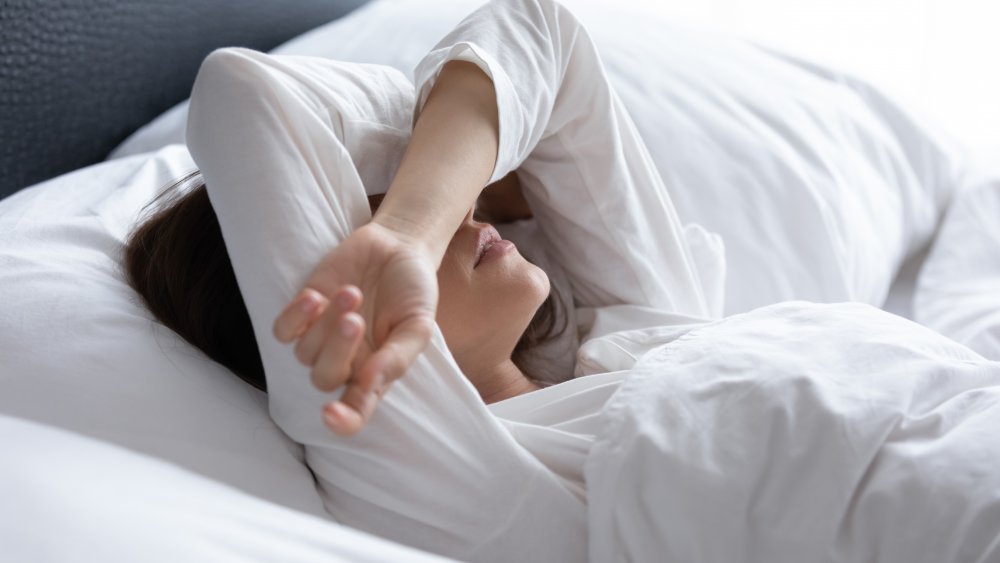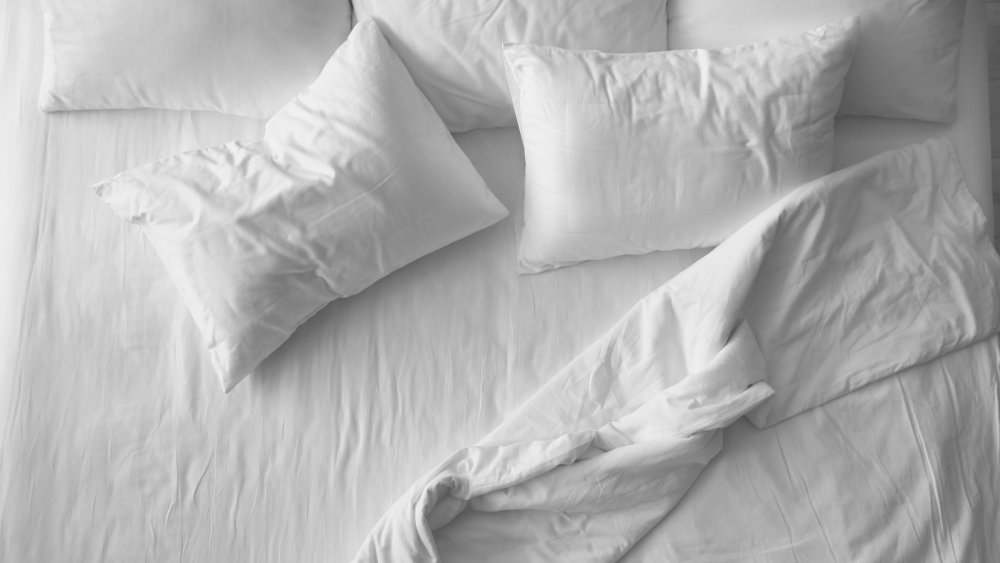Here's Why You're Really Having Night Sweats
Why are you really having night sweats? Many of us have been there before, the odd mornings you wake up and appear to have run from some kind of monster, seeing how drenched in sweat you are. Your pajamas and sheets are soaked, but that's about the only clue as to what happened.
The most logical answer is that you've had an episode of the night sweats. And while they may be alarming or annoying, they aren't usually a sign that something is wrong. They're also not a sign that you had a horrible nightmare (though that surely could've happened at the same time).
The Mayo Clinic defines the night sweats as episodes of extreme perspiration that are linked to an underlying cause. So the occasional mornings that you wake up a little clammy are probably nothing to worry about. However, if this seems to be happening frequently, it's worth looking into. The Mayo Clinic outlined a list of conditions that can help you figure out why you might be having night sweats, including anxiety and autoimmune disorders, menopause — here's how to tell if you're in menopause, FYI — drug addiction, HIV/AIDS, leukemia, and sleep disorders like insomnia. They can also be triggered by certain medications like antidepressants.
How to prevent night sweats
The truth is, you can't really find a solution for the night sweats unless you discover the underlying issue that your body is dealing with (via Self). To that end, the best way to treat and prevent them is to speak with a doctor, who can run tests or get more details from you to work out the problem.
But that doesn't mean you have to grin and bear it until the day of your appointment. In the meantime, there are things you can do to make night sweats much less of a pain. For one, while you still might drench your garments and bedding, try to sleep in breathable fabrics like linen, and adjust your sleeping environment. "Make sure your bedroom is at a comfortable temperature for sleeping, remove extra blankets from your bed, and refrain from exercising or eating spicy food — here's what it really means when you crave it, by the way — late in the evening," Dr. Laura M. Rosch shared in a chat with the American Osteopathic Association's website.
So with some extra comfort precautions, you can at least make the night sweats bearable.

